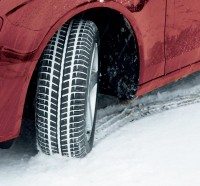A taxing issue for Italy’s online tyre market

Online retailing is revolutionising the European tyre market, and the reasons for this are plain to see – purchasing online is easy and internet retailers generally offer a wide choice. It is no secret that rising online sales are making life harder for local tyre centres, however our affiliate website in Italy shares that certain online operators there are taking advantage of a legal loophole in order to offer even lower prices – prices that ultimately threaten high street tyre dealers’ very survival.
Pnewsnews.it writes that these particular websites offer tyres up to 15 to 20 per cent cheaper than other online shops, and they can do so because they don’t add the cost of VAT, which in Italy is 22 per cent, to the products they sell. These online stores purchase tyres from larger wholesalers (usually in Belgium, the Netherlands, Germany and Poland) and then resell them to consumers. This arrangement is known as drop shipping or, more specifically, drop shipping of Intra-Community supplies. According to current laws, VAT must be charged in the country where a product is sold (in this case Italy), however the online retailers in question are taking advantage of a grey area in Italian legislation and simply not charging this 22 per cent tax. They are exploiting a loophole created through conflicting Italian court rulings on where VAT should be applied, and as this enables them to reduce prices by some 20 per cent, sales are booming.
Other online tyre retailers claim this practice amounts to unfair competition, and they’re demanding that Italian legislators close the loophole. They’re not the only companies affected, either: tyre makers and wholesalers could face penalties if it can be shown that they were aware of this practice. And while many customers appreciate the lower prices, purchases aren’t issued with a VAT code. No VAT code, no tax deductible invoice.
According to recently-published data, online tyre sales in Italy are worth €80 million a year. A quarter of these sales are made by German giant Delticom (which operates in Italy as Gommadiretto), ten per cent by fast-growing Italian firm Euroimport, and the remaining 65 per cent by a large number of companies established in the last four or five years, such as Gommista-Specialista, Gomme-Auto, Cerchigomme and Pneuzilla.
The Italian authorities seem to find it hard to detect and eliminate these loopholes, and perhaps the onus lies with the tyre market to self-regulate and rid itself of unfair competitors, as has already occurred in other industries. But time is of the essence – if no measures are taken soon, the ‘good’ retailers that charge VAT will have to change their ways in order to survive. And by doing so, the free functioning of the market will be irreparably compromised to everyone’s cost.




Comments